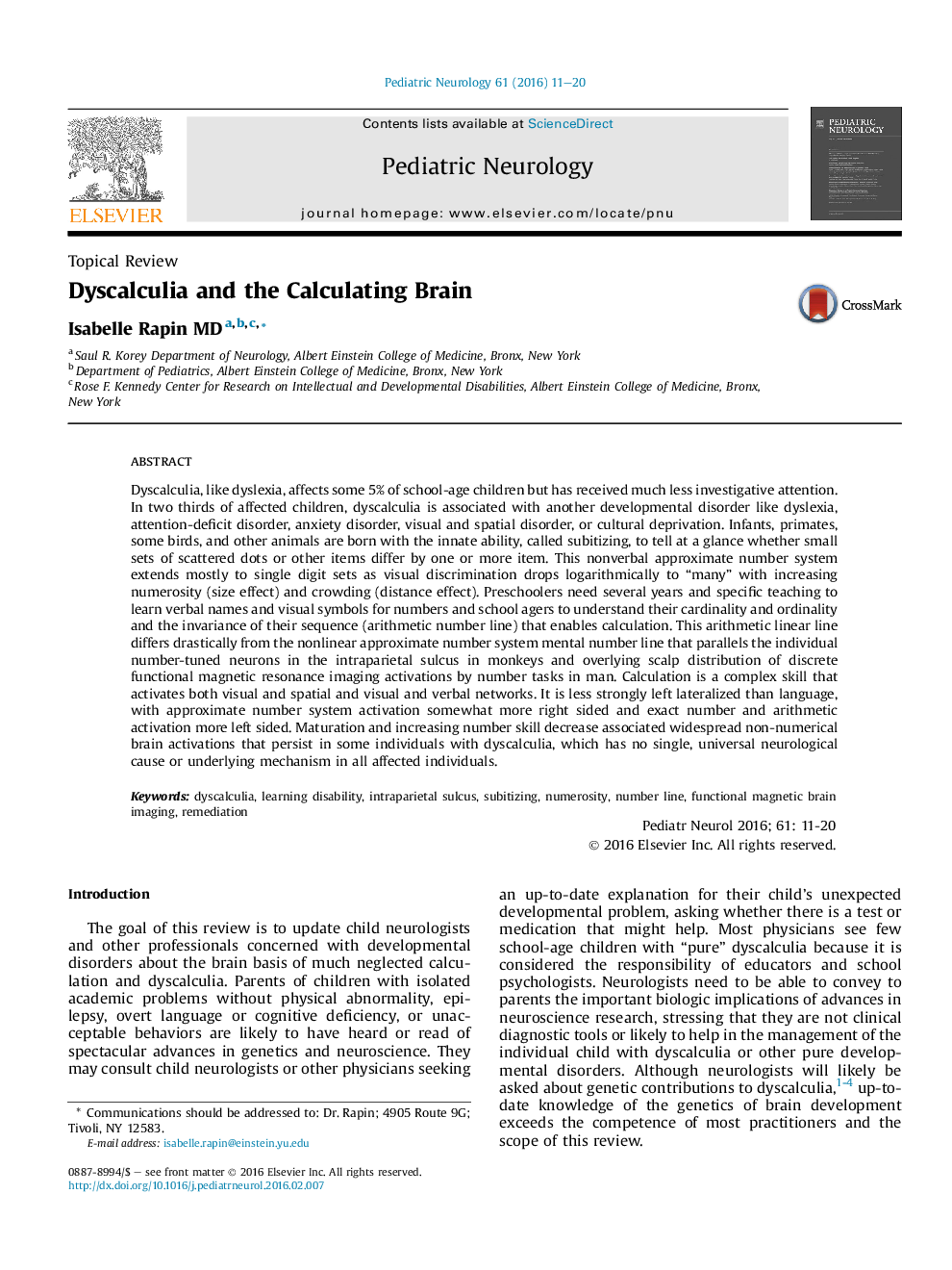| کد مقاله | کد نشریه | سال انتشار | مقاله انگلیسی | نسخه تمام متن |
|---|---|---|---|---|
| 6042031 | 1581265 | 2016 | 10 صفحه PDF | دانلود رایگان |
Dyscalculia, like dyslexia, affects some 5% of school-age children but has received much less investigative attention. In two thirds of affected children, dyscalculia is associated with another developmental disorder like dyslexia, attention-deficit disorder, anxiety disorder, visual and spatial disorder, or cultural deprivation. Infants, primates, some birds, and other animals are born with the innate ability, called subitizing, to tell at a glance whether small sets of scattered dots or other items differ by one or more item. This nonverbal approximate number system extends mostly to single digit sets as visual discrimination drops logarithmically to “many” with increasing numerosity (size effect) and crowding (distance effect). Preschoolers need several years and specific teaching to learn verbal names and visual symbols for numbers and school agers to understand their cardinality and ordinality and the invariance of their sequence (arithmetic number line) that enables calculation. This arithmetic linear line differs drastically from the nonlinear approximate number system mental number line that parallels the individual number-tuned neurons in the intraparietal sulcus in monkeys and overlying scalp distribution of discrete functional magnetic resonance imaging activations by number tasks in man. Calculation is a complex skill that activates both visual and spatial and visual and verbal networks. It is less strongly left lateralized than language, with approximate number system activation somewhat more right sided and exact number and arithmetic activation more left sided. Maturation and increasing number skill decrease associated widespread non-numerical brain activations that persist in some individuals with dyscalculia, which has no single, universal neurological cause or underlying mechanism in all affected individuals.
Journal: Pediatric Neurology - Volume 61, August 2016, Pages 11-20
